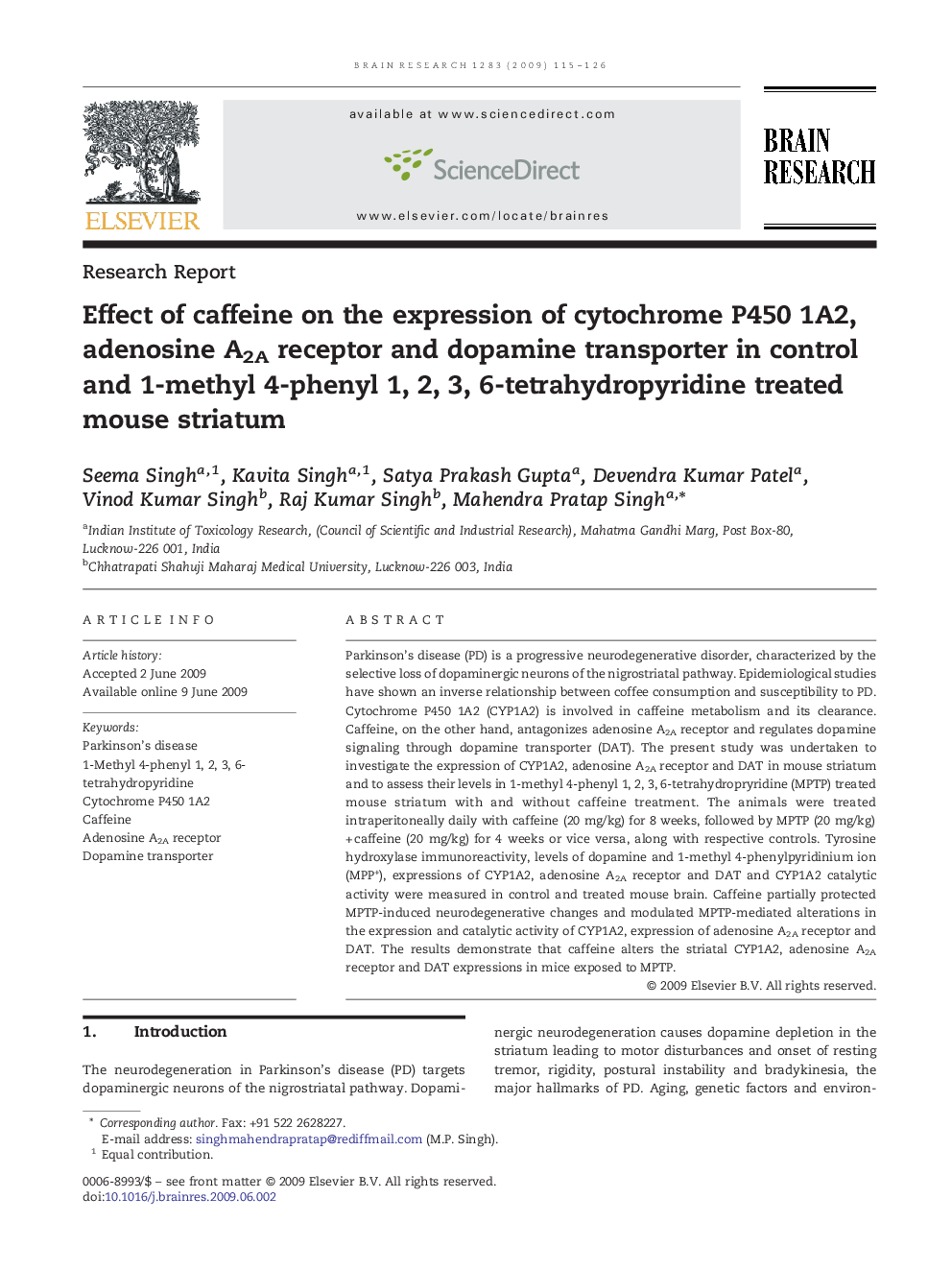| کد مقاله | کد نشریه | سال انتشار | مقاله انگلیسی | نسخه تمام متن |
|---|---|---|---|---|
| 4328136 | 1614156 | 2009 | 12 صفحه PDF | دانلود رایگان |

Parkinson's disease (PD) is a progressive neurodegenerative disorder, characterized by the selective loss of dopaminergic neurons of the nigrostriatal pathway. Epidemiological studies have shown an inverse relationship between coffee consumption and susceptibility to PD. Cytochrome P450 1A2 (CYP1A2) is involved in caffeine metabolism and its clearance. Caffeine, on the other hand, antagonizes adenosine A2A receptor and regulates dopamine signaling through dopamine transporter (DAT). The present study was undertaken to investigate the expression of CYP1A2, adenosine A2A receptor and DAT in mouse striatum and to assess their levels in 1-methyl 4-phenyl 1, 2, 3, 6-tetrahydropryridine (MPTP) treated mouse striatum with and without caffeine treatment. The animals were treated intraperitoneally daily with caffeine (20 mg/kg) for 8 weeks, followed by MPTP (20 mg/kg) + caffeine (20 mg/kg) for 4 weeks or vice versa, along with respective controls. Tyrosine hydroxylase immunoreactivity, levels of dopamine and 1-methyl 4-phenylpyridinium ion (MPP+), expressions of CYP1A2, adenosine A2A receptor and DAT and CYP1A2 catalytic activity were measured in control and treated mouse brain. Caffeine partially protected MPTP-induced neurodegenerative changes and modulated MPTP-mediated alterations in the expression and catalytic activity of CYP1A2, expression of adenosine A2A receptor and DAT. The results demonstrate that caffeine alters the striatal CYP1A2, adenosine A2A receptor and DAT expressions in mice exposed to MPTP.
Journal: Brain Research - Volume 1283, 4 August 2009, Pages 115–126